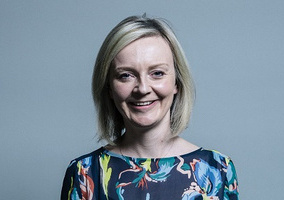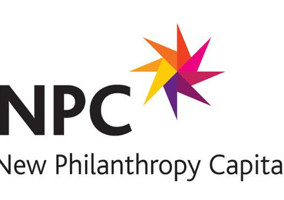Leaders in the charity sector have reacted to announcements in the government's mini-budget, welcoming measures on Gift Aid but suggested the most vulnerable will need more support during the cost-of-living crisis.
In his mini-budget statement this morning, the chancellor Kwasi Kwarteng announced that the basic rate of income tax will fall from 20p to 19p in the pound from April next year.
He axed the UK's 45% highest tax band for people who earn over £150,000 a year.
Accompanying documents also state a four-year transition period for Gift Aid relief will apply, to maintain the income tax basic rate relief at 20% until April 2027. In response to this, the Charity Tax Group (CTG) tweeted: “Positive engagement by the sector has ensured that the interests of charities are being considered as policies like this are developed.”
The chancellor also confirmed the government is scrapping a planned increase in the amount of tax companies pay on their profits, and announced changes to stamp duty.
Meanwhile, Kwarteng repeated commitments made in the government's Energy Bill Relief Scheme, which aims to cut energy prices for businesses, charities and public sector organisations.
The scheme will run for six months and cover energy used from 1 October 2022 to 31 March 2023. Kwarteng said the government’s energy plan will cost £60bn for six months.
This comes as the Bank of England has raised interest rates again, from 1.75% to 2.25%. This is the highest level since November 2008. Inflation in the UK eased slightly in August, falling to an annual rate of 9.9% from 10.1% in July.
Sector bodies’ reaction
NPC: 'It’s doubtful that tax cuts alone will help those struggling'
Dan Corry, chief executive at NPC, suggested the chancellor and prime minister "see the world very differently" to their predecessors.
"After many years when we were told we had to live with budget cuts to get the debt down, the agenda has shifted completely," he said.
"Tax cuts, mainly helping the better off, are the order of the day. If charities want to work with the new government to shape the agenda in favour of social impact, they’ll need to really consider this.
"This government appears to be focused on driving growth through economic measures, but we are yet to hear much about their wider agenda with regard to the social sector and its role in creating social and economic outcomes. And we have also not heard much about their policies for the most vulnerable. This matters because we know from our work on Levelling Up that it’s social issues people most care about. It’s doubtful that tax cuts alone will help those struggling the most – the people who so many charities are working hard to support.
"We need to make sure that those on the lowest incomes and with greatest social needs won’t have to foot the bill for all this in the longer term. Given the government’s enthusiasm for zones with lower taxes to incentivise business, perhaps we should also be calling for similar incentives for charities and philanthropy in deprived areas and areas with fewer charities (such as more generous Gift Aid) so that the benefits of any growth that is achieved can be enjoyed by everyone."
CTG: 'Continue to engage with the sector'
CTG chair Richard Bray said: "We are pleased that the government has maintained Gift Aid at its current level until April 2027 following income tax being reduced to 19% a year earlier than originally planned. Charities will have time to prepare for this change. Plans for a modern and digital Gift Aid system should be progressed in the meantime”.
"The tax system is complex for charities and we hope that the good work of the Office for Tax Simplification is continued as it is brought under the direct control of HMRC and HM Treasury. The reversal of off-payroll working rules and the Health & Social Care Levy will save charities’ time and administration costs, but significant efforts have already been undertaken to prepare and adapt systems, which could have been better targeted towards beneficiaries. CTG calls on the government to continue to engage with the sector as future tax reforms are developed."
NCVO: 'We need an inclusive approach to economic growth'
Rebecca Young, lead policy and influencing manager at NCVO, said: "The energy price guarantee is a vital intervention for households and charities, but this budget needed to offer targeted support for those who will still struggle to pay their bills. Any serious plan for growth needs to invest in our communities. Investment in hard infrastructure, such as transport, is welcome for many of the people charities support, but we know that to achieve inclusive economic growth we also need investment in social infrastructure – the spaces, places and activities that bring us together.
"There will be tough times ahead for communities. The role of charities and volunteers will be critical, but we know that charities are already struggling to meet rising demand with rising costs and falling income. We want to see the government offer direct support for people to prevent poverty and inequality. Where people need help, charities need funding to remain a lifeline for people who have nowhere else to turn. We need an inclusive approach to economic growth that benefits all and recognises the value of the charity sector."
CFG: 'A missed opportunity'
Dr Clare Mills, director of policy and communications at CFG said: “Unsurprisingly, there were few policies directly relevant to the operation of charities and social change organisations in today’s mini-budget. One piece of very good news for the sector is confirmation that the four-year Gift Aid transitional relief will apply from April 2023. And with nearly one million people employed in the charity sector a reduction in employers’ national insurance is welcome. But at what cost?
“The government’s announcements on tax will make little difference to ordinary people’s take-home income and will reduce government revenue. And at a time of great financial difficulty for the vast majority of people, the government has chosen to scrap the bankers’ bonus cap and the top rate of income tax, putting a great deal of faith in the benefit trickling down through society. If the government’s intention is to instil a sense of security and stability, whilst driving growth, it has chosen a risky strategy.
“For most people, today was a missed opportunity to strengthen a secure, fairly paid and productive workforce and wider society. The government could have reversed previous cuts to Universal Credit, as many charities have called for, but instead has put in place a harsher system for claimants. Many more workers, and those doing all they can to seek employment, are edging close to the poverty line. The charity sector and social change organisations remain braced for an increase in demand for their services this winter.”
Charities’ reaction
Oxfam: 'Very poorest who are being told to make the ultimate sacrifice'
Katy Chakrabortty, head of policy and advocacy, Oxfam GB, said: "The chancellor’s big gamble for growth promises to be win-win for the richest, with tax cuts in the bag today, while the poorest communities and younger generations are left to cross their fingers and hope.
"They will be hit hardest by cuts to public services and mounting debt with only the uncertain prospect of economic recovery to bail them out. And with the aid budget under ever-increasing threat, it is the world’s very poorest who are being told to make the ultimate sacrifice."
Chakrabortty warned the mini-budget risks widening the gap between the ‘haves’ and the ‘have-nots’.
Carers Trust: 'There remains a gaping hole in the social care investment needed'
Carers Trust chief executive, Kirsty McHugh, said: "Millions of unpaid carers are being plunged into poverty, or facing extreme financial pressure, because of the extra costs of their caring role. Despite the critical role unpaid carers play in propping up a creaking health and social care system by caring for family members and friends, yet again they have been let down by the UK government."
She added the Energy Bill Relief Scheme will only be short-term support for the independent local carers charities in the Carers Trust Network, and "the cancelling of the Health and Social Care Levy is yet another blow".
"There remains a gaping hole in the social care investment needed," she said.
Shelter: 'Cutting stamp duty won’t protect those at risk'
Polly Neate, chief executive of Shelter, said: "The real growth this government should be ready for is a growth in homelessness. The chancellor has done nothing to help the 2.5 million private renters who are already behind or constantly struggling to pay their rent. Cutting stamp duty won’t protect those at risk of losing their homes, but it will push up house prices. "
She said this mini budget is not going to ease "the terror" families feel, with the chancellor leaving housing benefit frozen at 2020 levels.
Trussell Trust: 'This will fail to protect people from needing a food bank'
Emma Revie, chief executive at the Trussell Trust, said: "Today’s mini-budget provides no additional support to help people afford the essentials. We are deeply concerned this will fail to protect people from needing a food bank.
"This comes as the food banks in our network continue to provide 50% more parcels to people across the UK in recent months than in the same period before the pandemic. That means an emergency food parcel is provided to someone facing hardship every 13 seconds, and this mini-budget will do nothing to change that.
"It’s wrong that people here in the UK are going without the essentials we all need to get by. As prices continue to rise, we will see more and more people forced to use food banks."
The chief executive said the package of support offered in May was effective, and the charity had hoped that the government would build on this.
She said: "Opportunities, such as easing deductions on benefits – which push people deeper into financial hardship, have been missed.
"That’s why we are calling on government to urgently revisit today’s mini-budget announcement and invest in a stronger social security system that provides security every day, as well as in times of national crisis. For a start, the Trussell Trust would urge the Government to increase benefits in line with inflation. Only then will we be able to end the need for food banks in the UK."
StepChange warns of 'precarious' situation
Richard Lane, director of external affairs at StepChange, said: "The position of those households with the least financial resilience and the greatest vulnerability to problem debt remains precarious despite the measures announced today.
"Those having to rely on means-tested benefits, which have still not been uprated even though the cost of food and other essentials has risen, are already over-represented among households experiencing problem debt. The problem debt and financial insecurity that households are struggling with creates significant social costs.
"It will be essential that the government remains open to finding other ways to support and nurture the financial position of those on low incomes, recognising the benefit this provides not only to hard-pressed households but also to the wider economy."
Work Rights Centre: 'Will only make the poorest poorer'
Work Rights Centre’s chief executive, Dora-Olivia Vicol said the organisation was "alarmed" by the chancellor's pledge to reduce people’s benefits if they do not fulfil their job search commitments.
Vicol added: "Britain doesn’t have an unemployment problem, it has a low-wage problem. This is a shocking example of punitive policy, which will only make the poorest poorer.
"As many as 42% of UC claimants are working! Pushing them closer to the brink does nothing to address their cost of living crisis. It simply shows that the government doesn’t have a plan for poverty."
Ashden: 'This is a triple miss by the chancellor'
Cara Jenkinson, cities manager at climate solutions charity Ashden, said: "Shockingly, there is no mention of energy efficiency in this fiscal statement.
"This is a triple miss by the chancellor – a missed opportunity to reduce our dependency on expensive gas, to create hundreds of thousands of jobs across the country and to cut our carbon emissions. It is a shame that the chancellor has not targeted stamp duty reductions for those who make their homes more energy efficient.”
Interest rates rise
Meanwhile, the Bank of England raised interest rates yesterday, from 1.75% to 2.25%, the highest level since November 2008.
Adam Halsey, charities partner at haymacintyre, said the increase would affect charities differently depending on their financial situation.
“For those with large cash balances and no debt this could be marginally positive and these charities are actively looking at treasury management and what is available. However, for those with mortgages and development loans that are not fixed or hedged this could be very expensive,” he said.
“Indirectly, charities will need to look at where their funding comes from and how their benefactors will be affected. Although likely not to have an effect on the short term with grants and contracts largely secured for this year the longer term landscape may be more challenging.
“Many charities have large investment portfolios and although most investment houses have said that markets will have built in expectations that interest rates will continue to go up in the foreseeable future, the timing and amount of the rise might create waves and so trustees will need to be in close contact with their investment managers to best plan for the consequences of such volatility.
“As is always the case, it is never easy to determine exactly how such a rise in rates will affect each charity although the purpose of such a decision being to curb inflation is likely to be of more interest to trustees than the few extra pennies of interest they may get on their bank balances.”
Related Articles











